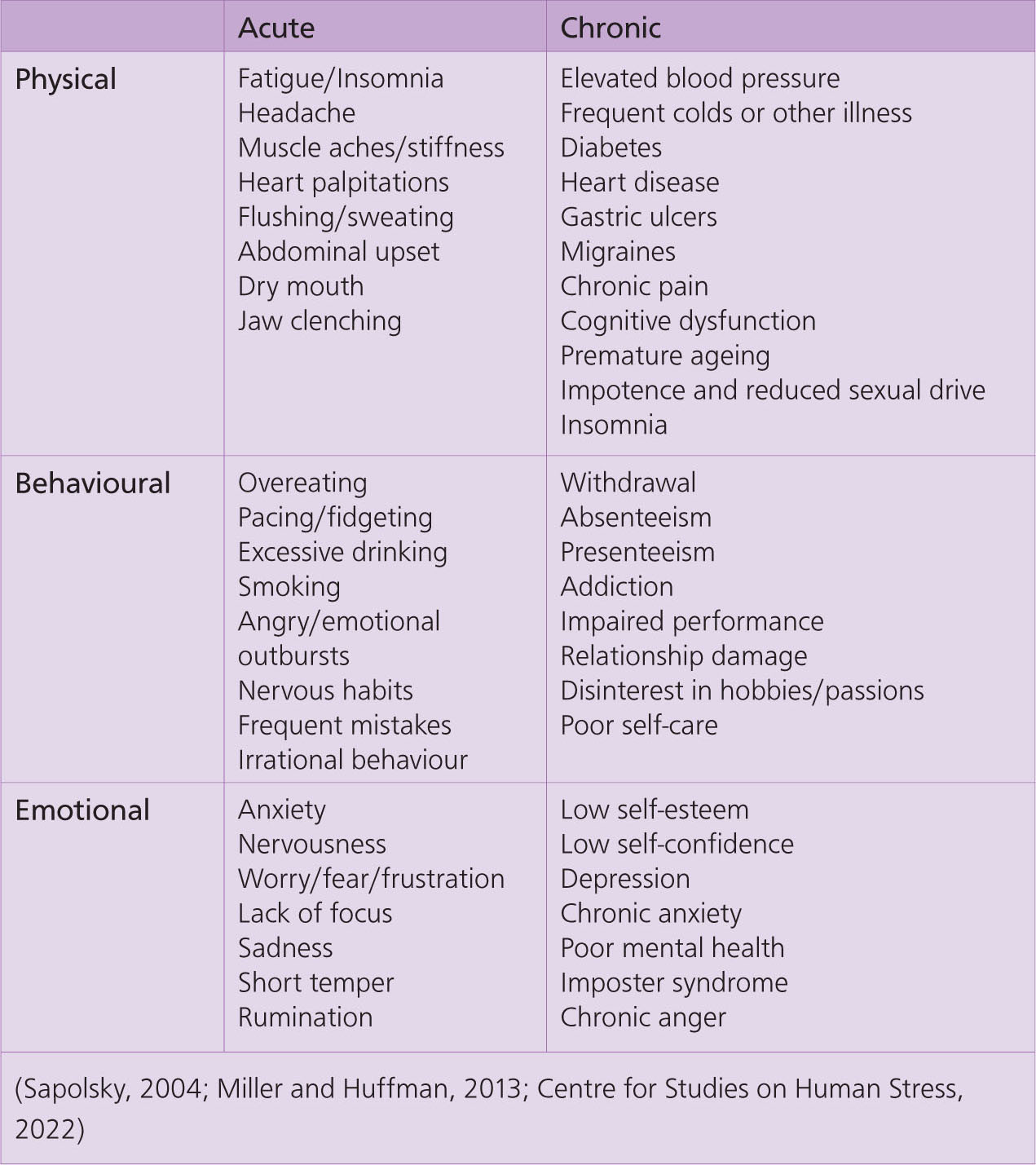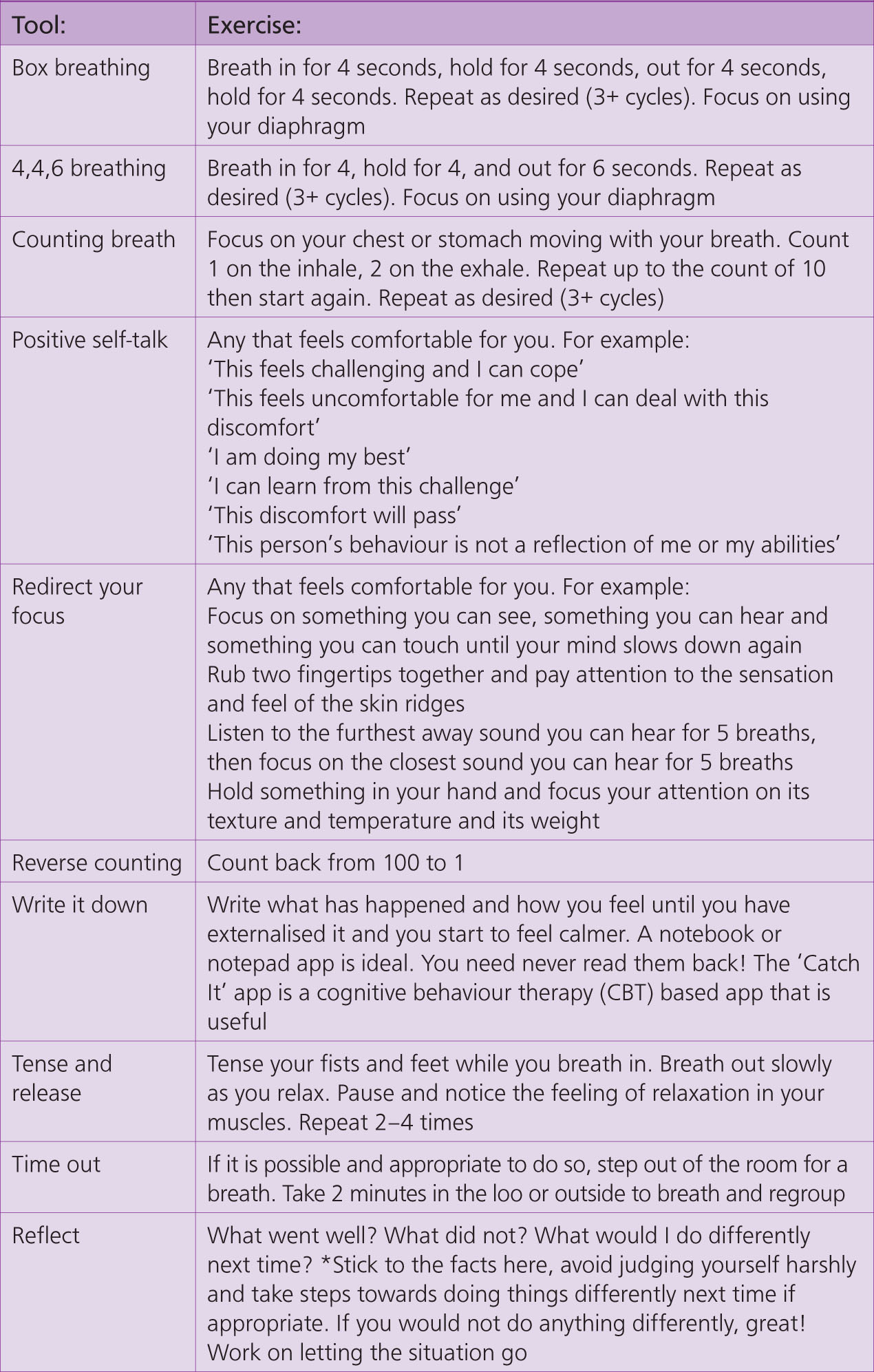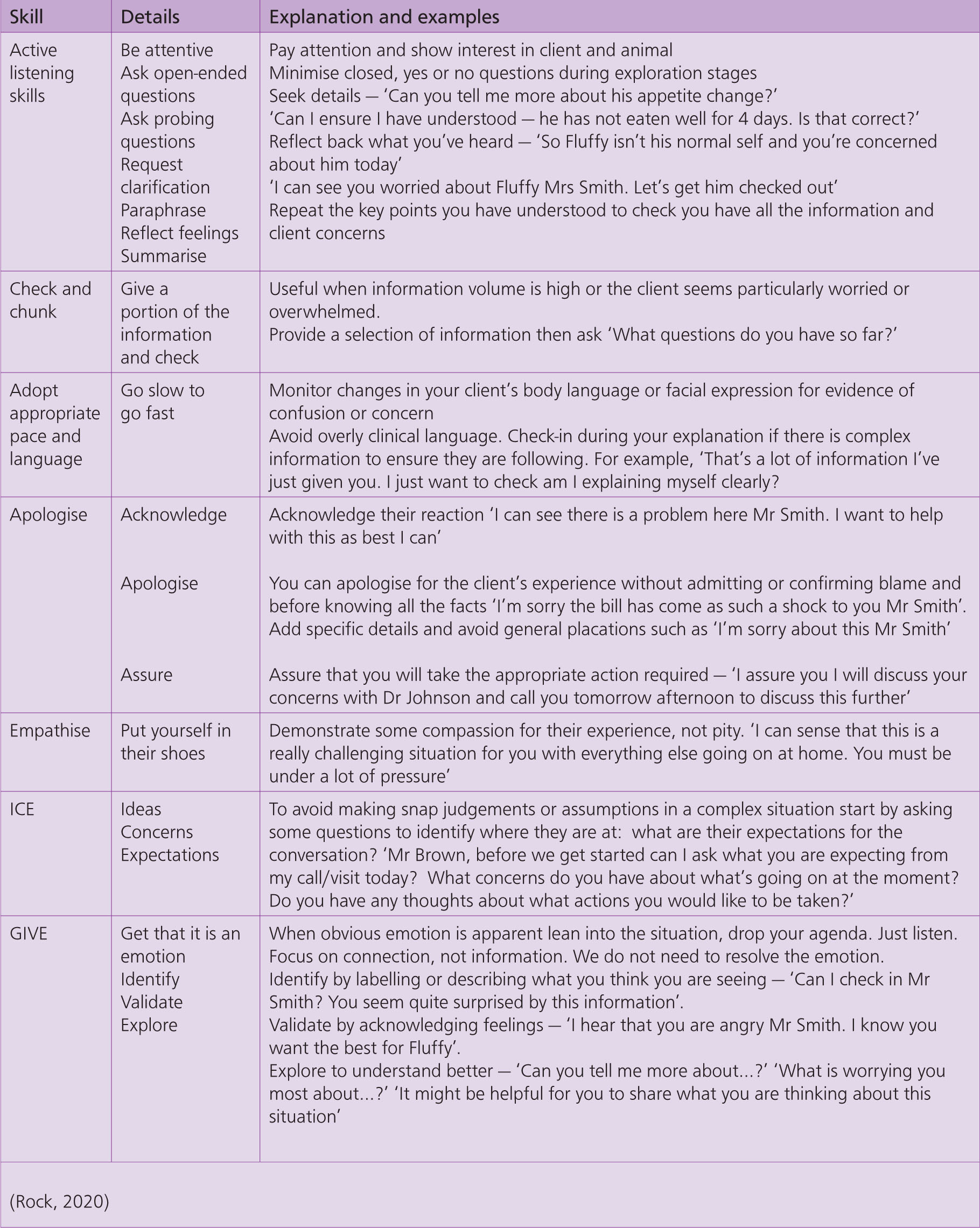Many who embark on a career in veterinary nursing do so out of a desire to help animals and develop their clinical knowledge and skill set. However, the ubiquity of client service in the veterinary profession is often underappreciated (Cornell and Kopcha, 2007). Equally, preparation for the challenges associated with this component has historically been an afterthought in veterinary education (Heath, 2006). Seemingly ‘soft skills’, such as communication training, were once considered irrelevant, leaving many veterinary surgeons and veterinary nurses inadequately prepared for inevitably challenging client interactions (Lewis and Klausner, 2003). However, the Royal College of Veterinary Surgeons (RCVS) has now included communication as a day one skill and education and continuing professional development (CPD) providers deliver training in non-clinical skills, such as complaint management, complex conversations and managing stress and mental health, alongside technical skills (Kurtz, 2006). Encouragingly, the recent RCVS Workforce Summit (2021) report suggests including interpersonal, leadership and personal skills as compulsory CPD requirements (Loed, 2022).
Even so, 2 years of widespread pandemic-related disruption has induced significant staffing challenges, service restrictions and widespread health and financial anxiety for practices and their clients, thus contributing to increasingly challenging interactions. Notably, the pandemic blind-sided an already shrinking workforce tackling supply and resource challenges induced by Brexit (Clark, 2022). The British Veterinary Association (BVA) found that 57% of veterinary staff surveyed in 2021 reported feeling intimidated by client behaviour during the previous year; a 10% increase from 2019 (BVA, 2021). The psychological impact of facing consistently difficult or abusive interactions should not be underestimated, particularly in the absence of adequate leadership, peer support or healthy and effective coping mechanisms. Repeat exposure, particularly early on in a veterinary career may contribute to incidences of stress, burnout, attrition and potentially suicide (Bartram and Baldwin, 2010).
This article will explore the physiological impact of encountering challenging or abusive conversations with clients and suggest several simple tools that can be utilised in the moment of conflict to help regain a sense of mental calm. It will also highlight the core communication skills that can help prevent or navigate confrontation professionally and constructively. It will also consider what to do when enough is enough.
Physiological impact and coping exercises
The sympathetic nervous system — fight, flight, freeze!
Challenging interactions can lead to feelings of frustration, anger, offence, contempt, anxiety and sadness. During a high-pressure situation the sympathetic nervous system (SNS) is activated, instigating the release of stress chemicals — cortisol and noradrenaline — and signaling the activation of the fight, flight or freeze system (Perez Madrigal and Smith, 2020). While fantastic for genuinely life-threatening situations, this survival mechanism is counterproductive when activated frequently during a working day. Chronic activation contributes to burnout, exhaustion, heart disease, immune system compromise and diabetes, as well as impacting job performance and personal relationships. Counteracting this response starts with recognising the signs of both acute and chronic stress as shown in Figure 1.

Activating the parasympathetic nervous system
Introducing exercises that elevate the activity of the parasympathetic nervous system (PNS) can help counteract SNS domination and reactivate essential physiological functions such as digestion and immunity; thus minimising the potential long-term effects of stress. These exercises are relatively simple and when used regularly can improve the experience of challenging interactions. During a period of high pressure, the mind is easily hooked into a spiral of worry, anger or stress, sometimes unconsciously. Although entirely valid and justified, this reaction does not eradicate the stressor, nor aid us in the moment. In fact, being emotionally hijacked during a difficult client interaction can interfere with problem-solving and rational thought processes and generally compound an already uncomfortable experience. When practised regularly, simple grounding exercises allow acknowledgement of our feelings, while creating a gap between the situation and our default response in which to consider an intentional and measured reaction to the situation. Some examples of these tools are provided in Figure 2.

Exercise
- Pick one or two exercises that you feel comfortable to try out.
- Notice a situation where you find yourself being physically or emotionally triggered by a client's behaviour.
- Acknowledge how you feel in the moment (anger, judgment, frustration, defensive etc.). Use the language ‘I feel anger’ rather than ‘I am angry’. This acknowledges that it is a real but transient experience and not a character trait or your identity.
- Practice one of the exercises outlined in Figure 2 for 30 seconds to 2 minutes, longer if you have time and space.
- Notice if there is a shift in how you feel physically or mentally in the moment or afterwards.
- Commit to practising this exercise for a couple of weeks initially when you feel stress signs occurring.
Practise is the operative word here! Do not worry about getting distracted, you most likely will, and that is normal. Just refocus on the exercise when you realise you have lost track. The difference may not be dramatic or immediately obvious but over time, and with consistent practise, it is possible to calm your nervous system even when faced with an uncalm client! Utilising these practices ahead of potentially difficult situations can also contribute to an increased feeling of calm and preparedness. Using them afterwards can facilitate a more rapid recovery, as opposed to ruminating on the situation and it dominating the day. Maintaining a high standard of self-care is critical when dealing with such challenges on a regular basis, as is discussing the challenges with management if demands are exceeding the available resources.
Core communication skills
Why bother?
Having an understanding and competence in core communication skills can help manage challenging client interactions constructively and minimise stress. Although once considered ‘soft psychosocial skills’, the need to identify and navigate the various cultural, relational and physical barriers that exist between patient and practitioner in order to improve medical outcomes have now been acknowledged (Coe et al, 2008). This has shifted the human medicine ethos from a dictatorial practitioner-centred approach to a patient-centred approach, where the patient is considered an ‘active partner’ in treatment planning and decision making (Englar et al, 2016). This has since evolved into a ‘relationship-centred’ approach, which notes the importance of rapport and trust-building in medical relationships (Institute of Medicine (US) Committee on Quality of Health Care in America, 2000). Fortunately, the skills associated with this model can be taught and should be with as much emphasis as clinical skills (Kurtz, 2006). Prioritising communication skills training in human medicine is associated with improved diagnostic processes, problem-solving and care outcomes (Lewis and Klausner, 2003).
Human nature — assumptions and judgements
Although unpleasant or abusive behaviour is never justified, it is important to consider what we do not know about the client's circumstances. It is human nature to make snap assumptions and judgements, especially if someone is behaving in a rude or abusive manner. However, such assumptions can compound an already charged situation. Many client complaints report not feeling heard by the team or receiving dismissal or condescension in response to their concerns (Englar et al, 2016). Although our intention may be to reassure them with our professional opinion, this approach can remove the sense of control or ownership the client feels in the situation. Some clients will actively seek direction and guidance, while some will feel degraded and frustrated by a solely directive approach (Radford et al, 2003). Taking a pause to assess the needs of the client and the situation, rather than rushing in with a default response or process that suits us and our schedule, can pay dividends.
Listening is a superpower
In the face of conflict, listening is a superpower, both because of the difficulty in doing so in the face of a disgruntled client, and because it can provide otherwise unapparent clues and insight into how to navigate or resolve a situation more effectively. As humans, we often listen with a mouth full of words. The brain goes into action, preparing appropriate retorts or responses to justify, explain or defend ourselves or the situation. However, this approach often intends to convince the other party to see things from our perspective. It also prevents us, the practitioner, from gaining a clear understanding of the client's concerns or requirements. Instead of listening to respond, practise listening to understand. Instead of offering more information or justification, try approaching with curiosity and inquiry (Coe et al, 2008). For instance, if a client is angry with a bill, responding with justification or explanation may be helpful for some but antagonistic to others. Instead, taking a pause to step into their shoes and understand what we do not yet know can be enlightening. For example, ‘I can see that the bill has come as a shock Mrs Smith. So that I can help you further, can I clarify if the amount is the main problem or is there something else I need to be aware of?’ Once we have clarification of the problem from their perspective we are in a better place to select the most appropriate steps forward. Concerns are often raised about the time required to engage in ‘long-winded’ exploratory conversations, however, not collecting the relevant information early on will likely cost time, either in disagreement, miscommunication or future complaints. Taking a breath and slowing the pace a little can actually improve efficiency in these more complex situations.
KEY POINTS
- Many are drawn to veterinary medicine for the animal and clinical aspects and the ubiquity of client interaction is often overlooked.
- Veterinary education has historically overlooked the importance of building interpersonal skills in training programmes, but this is changing for the better.
- Repeated exposure to distressing or heated client interactions can have a significant impact on mental and physical health, so it is important to practice a high level of self-care around this aspect of the role.
- Creating a safe environment to work in is key to managing these challenges. Clear client behaviour protocols should be established and followed through, and the team must be adequately trained and supported.
Shared decision making
Understanding and utilising key communication skills, even in a very basic manner, can result in clients feeling more valued and involved with treatment decisions and improve owner compliance. Shared decision making (SDM) is a particular area where veterinary nurses can offer huge value. Helping clients explore recommended or potential treatment plans and gaining an understanding of any barriers the owner anticipates can help facilitate a collaborative solution and planning-based discussion (Cary, 2021). Talking with our clients, rather than at them, is far more likely to improve client understanding and buy-in (Cary, 2021). Figure 3 provides several core communication skills that can help to navigate a challenging conversation.

When is ‘enough is enough?
Client behaviour protocol and team support
Despite all our best efforts, unprovoked and inappropriate behaviour will still occur. Safety is of the utmost importance in these situations. It is a legal obligation of the practice to prevent or minimse risk to the team's health, safety and welfare under the Health & Safety at Work Act 1974 and the Management of Health and Safety at Work Regulations 1999. Additionally, the Health and Safety Executive Management Standards provide direction on how to monitor workplace stress and create effective strategies to manage a range of stress-inducing demand factors, such as client relationship challenges and exposure to abuse (Health and Safety Executive, 2019). It is therefore important to create a clear protocol defining intolerable behaviour and to communicate these expectations to clients through posters, mail drops or website posts.
If a team member feels uncomfortable with a client they should alert another member of the team to be nearby for support if needed. Consultation room doors should remain open, with the team member retaining a clear exit of the room and the client moving into the room. Security or police support should be called as soon as a significant risk is apparent. Ideally, no one should be subjected to this experience. Should they occur, support from leaders and colleagues is imperative, either through one-to-one de-briefs or team discussions (Cantrell, 2009), along with the review of existing protocol and client registration where relevant. Signposting to appropriate mental health support resources should occur if deemed necessary.
Refusing service delivery
Where client behaviour is consistently inappropriate in spite of preliminary warnings, or the practices client conduct protocol is breached, the RCVS permits directing the client to alternative providers as an appropriate response. They recommend providing a termination notice period, communicating this to the client clearly and delivering this in writing by recorded post (RCVS, 2019). Each practice should consider and adopt its own individual approach for managing client behaviour boundaries. Further guidance is available from the RCVS (https://www.rcvs.org.uk/setting-standards/advice-and-guidance/contact-the-advice-team/) and the Veterinary Defence Society (VDS) (https://www.thevds.co.uk/contact).
Conclusions
Experiencing challenging client interactions is an unpleasant aspect of working in veterinary medicine or any other service-based industry. Dealing with abusive clients can have a significant impact on mental and physical health. While it is important to raise public awareness in an attempt to encourage respectful conduct, it is not possible to control client behaviour. It is, therefore, important to cultivate effective coping and recovery mechanisms to reset when these instances occur. Acknowledging your reactions, practising methods to stay grounded in the face of conflict and adopting healthy routines to rest and recover are all key to minimising the negative impact of challenging days. Additionally, it is vital to prioritise ongoing education and training in core communication skills that will help navigate such interactions and build confidence in managing them. Most importantly, individual practices must cultivate a safe and supportive environment for their teams to work in, where clear boundaries around client conduct are communicated and followed through, and leaders and peers support each other around this challenging aspect of the role.


